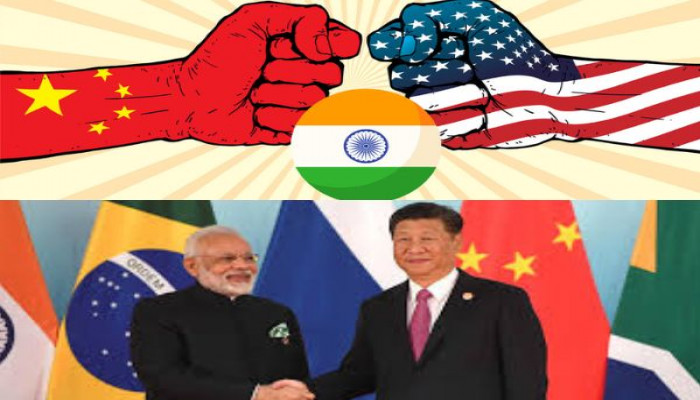India plans stricter limits on Chinese investment in electronics sector
- In Reports
- 06:45 PM, Apr 22, 2025
- Myind Staff
Certain reports have stated that India plans to put a 10% equity stake in Chinese companies in applications-related electronics joint ventures (JVs), with approval contingent on technology transfer to domestic counterparts. In The Economic Times article, it is mentioned that India plans for self-reliance in high-tech manufacturing and concerns about limited local expertise in advanced electronics.
The report said that the government prefers Chinese contract manufacturers or supply chain firms over brands to strengthen India’s manufacturing ecosystem. Flexibility on equity limits may be offered if U.S. or European firms relocate from China to India, with Chinese suppliers potentially holding up to 49% stakes in exceptional, case-by-case approvals, officials told ET.
Strengthening Self Reliance
The government seems to be favouring Chinese contract manufacturers and supply chain companies as opposed to consumer-facing brands. The aim is to build India’s manufacturing backbone and not promote brand dominance of foreign firms. An opportunity for Chinese suppliers to draw equity, possibly raising it to a 49% economic stake, would be there if American or European firms moved from China to India. Exceptions would be given on a case-by-case basis, said the officials speaking to the publication.
"As the Indian firms need technology transfer, the government is likely to allow 10% Chinese equity in joint ventures. But there won't be open gates for Chinese investments in electronics or other sectors," a source told the publication.
From solar panels to drilling machines and electronics, India does not wish to repeat the vulnerabilities it encountered with Chinese supply chains. In this case, an industry executive mentions even German-made drilling machines are facing a blockade from supply chains linked to China: "The drilling machines are made by German companies but since they have supply chains in China, the same are being throttled," the industry executive told ET.
Investment Strategy
The restrictive policy shows that India wants to prevent making the same mistakes as seen in Vietnam, where the electronics sector has become heavily dependent on Chinese companies. India's caution emanates from suspected Chinese supply chain disruptions, which have intensified since the 2020 Galwan clash. Trump's renewed reciprocal tariffs on Chinese products have forced Beijing to come to terms offered by India..
While U.S. manufacturers have yet to propose relocating Chinese suppliers to India, many are keeping a close watch on the geopolitical situation. In parallel, India is trying to get its domestic companies to penetrate the U.S. market with both countries aiming to seal a bilateral trade agreement later this year.
Apple campaign
Apple's recalibration in the supply chain is indicative of the changes taking place. The Indian government welcomes Chinese suppliers, however, the company relies more on collaborations with Indian firms, supported by Taiwanese and Japanese suppliers. Tata Electronics, for example, manufactures iPhone enclosures in India for export and not for iPads.
Other Indian suppliers, like Motherson Group, Jabil, Aequs, Sunwoda, Foxlink, Salcomp, and Bharat Forge, are also expanding their roles in the Apple network. Such diversification shows Apple’s efforts to reduce dependence on China while maximising local value addition in India.







Comments